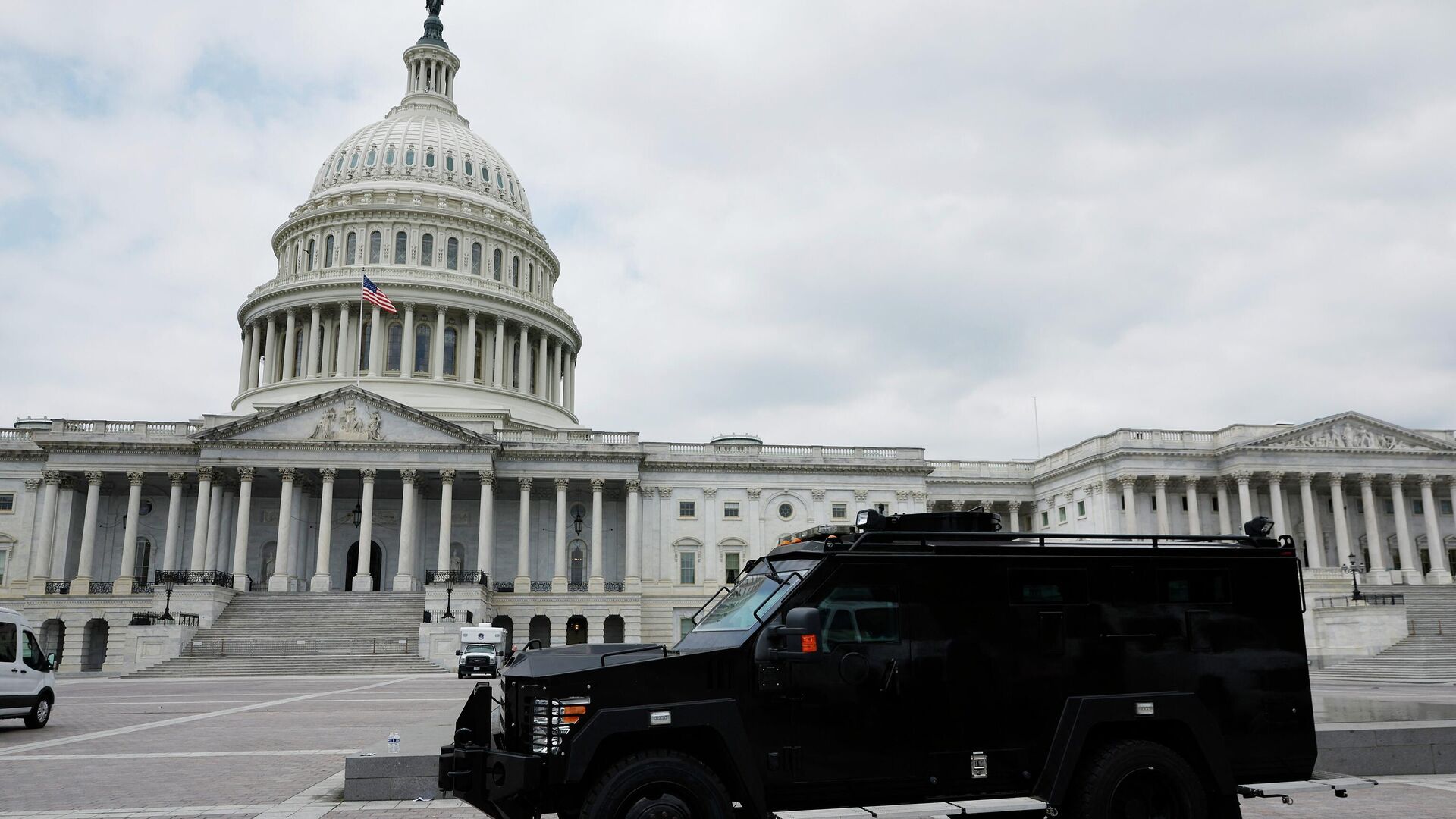Judges Across US Blocking Anti-Abortion ‘Trigger Laws’ in Wake of High Court’s Ruling

© AFP 2023 / CHIP SOMODEVILLA
Subscribe
Across the United States, a vast array of legal battles are being fought as advocates race to protect abortion access in the wake of the US Supreme Court’s Friday ruling overturning the case providing it with national legal sanction. Several states have so-called “trigger laws” that automatically took effect, immediately banning abortions there.
The American Civil Liberties Union (ACLU) announced on Tuesday it had successfully temporarily blocked Texas’ abortion ban that dates to before 1973 when the US Supreme Court legalized abortion nationwide in the Roe vs. Wade case. As a result, abortions until the sixth week of pregnancy will remain legal in the Lone Star State, in line with a law passed last year banning abortions beyond that point.
“It is a relief that this Texas state court acted so quickly to block this deeply harmful abortion ban,” Marc Hearron, senior counsel at the Center for Reproductive Rights, said in a press release. “This decision will allow abortion services to resume at many clinics across the state, connecting Texans to the essential health care they need. Every hour that abortion is accessible in Texas is a victory.”
According to the Texas Tribune, abortions can only resume at the handful of clinics named in the lawsuit, and the court will hold a new hearing on July 12 to decide on a more permanent restraining order. Despite their efforts, the state’s “trigger law” will take effect in roughly two months, after a state court agrees to enforce it.
In addition to Texas, 12 other US states have “trigger laws” passed before Roe vs. Wade was struck down on Friday, which immediately took effect when the high court made its ruling, banning abortions in that state or setting in motion their imminent banning. Eight states other than Texas also still have pre-Roe abortion ban laws still on the books.
Judges in Louisiana and Utah have made similar moves blocking statewide bans from taking effect. In Michigan, a state court ordered the state’s pre-Roe abortion ban suspended in May in anticipation of the Supreme Court’s decision, after a draft of the decision was leaked to the press.
In Louisiana, where the trigger law took immediate effect without court approval, Orleans Parish Civil District Judge Robin Giarrusso issued a temporary restraining order against that law on Monday, although clinics are trying to get it struck down entirely, with a hearing scheduled for July 8.
“Louisiana’s rushed and poorly conceived trigger laws are unconstitutionally vague and violate due process,” Joanna Wright, the New Orleans attorney who’s leading the effort, told New Orleans Public Radio. “It is unfortunate that in his haste to score political points in the aftermath of Dobbs [vs. Jackson, the case on which the US Supreme Court ruled on Friday], the state’s Attorney General (Jeff Landry) has ushered in an era of complete disregard for women’s bodily integrity and reproductive autonomy.”
In Utah, a 14-day restraining order was issued on Monday, blocking that state’s trigger law, although Planned Parenthood is also pursuing a preliminary injunction for longer. They, too, argue that the trigger law violates the state’s constitution.
"Utahns who have relied on safe, legal access to abortion - access that has existed for at least five decades - will lose the right to determine the composition of their families and whether and when to become parents; their entitlement to be free from discriminatory state laws that perpetuate stereotypes about women and their proper societal role; the right to bodily autonomy and to be free from involuntary servitude; and the right to make private health care decisions and to keep those health care decisions free from public scrutiny," the lawsuit states, according to KSL Newsradio.
In several other states, including Idaho, Kentucky, and Mississippi, clinics that provide abortion services have brought similar cases against trigger laws.
However, there have also been reversals. A South Carolina federal judge stayed an injunction on Tuesday, allowing the state’s six-week abortion ban that was passed last year to take effect, and an Ohio judge did the same on Friday for that state’s six-week ban, just moments after the Supreme Court’s decision was handed down.
